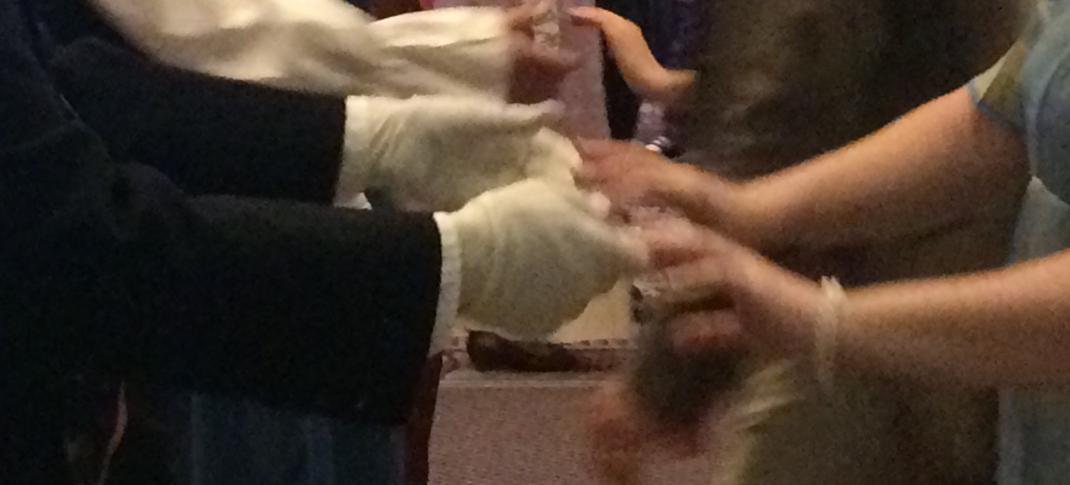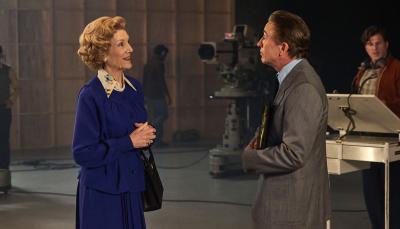What's A Jane Austen Convention Like? Let's Find Out

“Jane Austen? Didn’t she just write six novels? What do you talk about?” This comment—quoted with a satirical inflection that Jane Austen would have appreciated—was made by Liz Philosophos Cooper, President of the Jane Austen Society of North America (JASNA) at the organization’s 2019 Annual General Meeting/Conference.
A bunch of people gathering to talk about Austen? Yes, and yes again. And it’s not just at this particular annual event, which attracts hundreds of people from all over the world (and fromn every continent except Antarctica). Many take place throughout the year in formal and informal gatherings, often sponsored in the U.S. by regional JASNA chapters.
But what is it about Austen that still fascinates us so after two hundred years? It’s not an easy question to answer, but first and foremost, her books are brilliant and reveal new insights on every reading. And it seems that everyone, from scholars to casual readers, interprets her writing, as well as the well-documented details of her life, in their own way. Some readers enjoy a portrait of a society ruled by manners and civility, her delicate and subtle love stories. Others find her a progressive and critical writer, well aware of the political issues and personalities of her time. And still more recognize her as a brilliant satirist, a comic genius.
Film adaptations have made Austen part of pop culture, for better or worse, adding a new layer of interpretation to her books—and bringing in generationgs of new readers. The image of Mr. Darcy and the wet shirt, for instance, has become part of Pride and Prejudice, although Austen herself never actually wrote that scene.
But back to the original question—what do Janeites (also known as Austenites although personally I find both of these labels rather too precious) talk about? This year the 2019 meeting, held in Williamsburg, VA and focussed on Northanger Abbey, gave us plenty to talk about. While Northanger Abbey satirizes the popular Gothic novels of the time, does it actually qualify as one? And what else had Austen read in addition to the seven other “horrid novels” mentioned in the text? In addition to learning about literary tourism in her time, we heard about Austen’s novels as perceived by readers in Brazil, the argument for Northanger Abbey as a detective novel, the British Army in Austen’s time, and (my favorite)—does the hero, Henry Tilney, suffer from toxic masculinity?
Special sessions were included on Jane Austen’s House Museum in Chawton, U.K., the garden, horse-drawn vehicles of Austen’s time, and how her characters would have enjoyed chocolate, or tied their cravats (if male). Above all, we had the opportunity to immerse ourselves for a few short days in Jane Austen's world in the company of like-minded people. Furthermore, the living history of historic Williamsburg provided a great backdrop for the serious enthusiasts who brought multiple costumes for every day of the conference, and it's something of a tradition to dress for the ball.

The costumes ranged from lovingly home-sewn to meticulous copies of surviving historical garments, and the shopping Emporium (Jane liked to shop--her letters are full of details about accessories and fabric purchases), provided opportunities to hire outfits and to buy accessories.

We were entertained by the Capital Cricket Club, the only 18th-century cricket team in the world. It’s a (relatively) fast-paced game and a lot of fun to watch, although those who tried their hand at batting found that their baseball experience was a liability. In cricket you choose whether to run on a ball, and you run carrying your bat, and straight ahead (everyone wanted to run to the right)!
Talking of baseball, Austen tells us that Catherine Morland, the heroine of Northanger Abbey, before her obsession with all things Gothic kicked in … prefer[red] cricket, base-ball, riding on horseback, and running about the country at the age of fourteen, to books. Yes, baseball.

There was some conversation about the upcoming BBC Sanditon (January 2020) and happily most people were looking forward to it, despite some rants on social media about Andrew Davies (or his characters) taking liberties. I’m certainly looking forward to it, and also the new film version of Emma (out in February, 2020).
It's your turn to talk Austen. Please tell us about your favorite TV/Film adaptation and your favorite novel! Are you looking forward to Sanditon?



